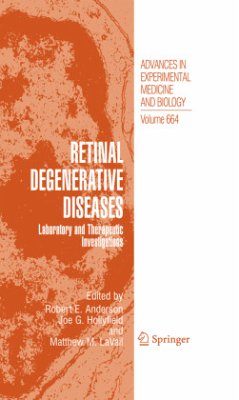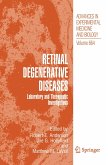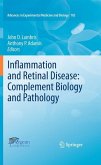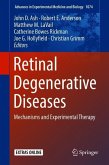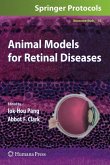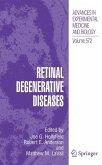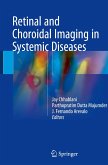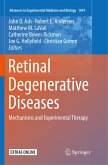This is the proceedings of the XIIIth International Symposium on Retinal Degenerations, which will be held in Emeishan, Sichuan, China on September 18 - 23, 2008. The themes will include "Molecular and genetic mechanisms in photoreceptor degeneration", "Age-related macular degeneration", "New diagnostic techniques for retinal degenerations". "Neuroprotection in the prevention of retinal degeneration", "Gene therapy and the correction of gene defects", as well as other emerging topics that may develop over the next few months.
TheInternationalSymposiumonRetinalDegenerationhasbeenheldinconjunction withthebiennialInternationalCongressofEyeResearch(ICER)since1984. These RDSymposiahaveallowedbasicandclinicianscientistsfromaroundtheworldto conveneandpresenttheirnewresearch?ndings. Theyhavebeenorganizedtoallow suf?cienttimefordiscussionsandone-on-oneinteractionsinarelaxedatmosphere, whereinternationalfriendshipsandcollaborationscanbefostered. The XIII International Symposium on Retinal Degeneration (also known as RD2008) was held from September 18 23, 2008 at the Hong Zhu Shan Hotel at thefootofEmeiMountainintheSichuanProvinceofChina,nearChengdu. The meeting brought together 152 basic and clinician scientists, retinal specialists in ophthalmology,andtraineesinthe?eldfromallpartsoftheworld. Inthecourse ofthemeeting,42platformand88posterpresentationsweregiven,andamajority ofthesearepresentedinthisproceedingsvolume. Newdiscoveriesandstateofthe art?ndingsfrommostresearchareasinthe?eldofretinaldegenerationswerep-sented. TheRD2008meetingwashighlightedbythreespeciallectures. The?rstwas givenby Glen Prusky,PhD,WeillCornellMedicalCollegeofCornellUniversity, New York City, NY. Dr. Prusky discussed the measures of vision in rodents as a tool for evaluating the treatment of retinal degenerative diseases. The second was given by Kang Zhang, MD, PhD, on the molecular genetics of Stargardt s Disease. Dr. Zhang s undergraduate degree in biochemistry is from West China University in Chengdu, and he currently is at the Shiley Eye Center, University ofCaliforniaatSanDiego,SanDiego,CA. Thethirdplenarylecturewasgivenby Peter Campochiaro,MD,oftheWilmerEyeInstitute,JohnsHopkinsUniversity, Baltimore, MD. Dr. Campochiaro discussed the role of oxidant stress in macular degeneration. This Symposium would not have been possible without the support of our colleagues at the Sichuan People s Provincial Hospital and the Department of Ophthalmology of West China Hospital, Sichuan University. Fan Ying Chuan, MD,ViceChairman,SichuanOphthalmologySociety,DirectorofOphthalmology Department,SichuanAcademyofMedicalScience&SichuanProvincialPeople s Hospitaland Chen Xiao Ming,MD,Chairman,SichuanOphthalmologySociety, Director of West China Eye Center, West China Hospital, Sichuan University, gave tirelessly to our effort from the beginning. We are especially grateful to the ix x Preface administration of the Sichuan People s Provincial Hospital, which provided the ?nancialguaranteesnecessarytosecurethemeetingvenue. Theassistanceof Chen Hui (Robert), MD, of the SPPH throughout the planning and the meeting itself were of enormous help to us.
TheInternationalSymposiumonRetinalDegenerationhasbeenheldinconjunction withthebiennialInternationalCongressofEyeResearch(ICER)since1984. These RDSymposiahaveallowedbasicandclinicianscientistsfromaroundtheworldto conveneandpresenttheirnewresearch?ndings. Theyhavebeenorganizedtoallow suf?cienttimefordiscussionsandone-on-oneinteractionsinarelaxedatmosphere, whereinternationalfriendshipsandcollaborationscanbefostered. The XIII International Symposium on Retinal Degeneration (also known as RD2008) was held from September 18 23, 2008 at the Hong Zhu Shan Hotel at thefootofEmeiMountainintheSichuanProvinceofChina,nearChengdu. The meeting brought together 152 basic and clinician scientists, retinal specialists in ophthalmology,andtraineesinthe?eldfromallpartsoftheworld. Inthecourse ofthemeeting,42platformand88posterpresentationsweregiven,andamajority ofthesearepresentedinthisproceedingsvolume. Newdiscoveriesandstateofthe art?ndingsfrommostresearchareasinthe?eldofretinaldegenerationswerep-sented. TheRD2008meetingwashighlightedbythreespeciallectures. The?rstwas givenby Glen Prusky,PhD,WeillCornellMedicalCollegeofCornellUniversity, New York City, NY. Dr. Prusky discussed the measures of vision in rodents as a tool for evaluating the treatment of retinal degenerative diseases. The second was given by Kang Zhang, MD, PhD, on the molecular genetics of Stargardt s Disease. Dr. Zhang s undergraduate degree in biochemistry is from West China University in Chengdu, and he currently is at the Shiley Eye Center, University ofCaliforniaatSanDiego,SanDiego,CA. Thethirdplenarylecturewasgivenby Peter Campochiaro,MD,oftheWilmerEyeInstitute,JohnsHopkinsUniversity, Baltimore, MD. Dr. Campochiaro discussed the role of oxidant stress in macular degeneration. This Symposium would not have been possible without the support of our colleagues at the Sichuan People s Provincial Hospital and the Department of Ophthalmology of West China Hospital, Sichuan University. Fan Ying Chuan, MD,ViceChairman,SichuanOphthalmologySociety,DirectorofOphthalmology Department,SichuanAcademyofMedicalScience&SichuanProvincialPeople s Hospitaland Chen Xiao Ming,MD,Chairman,SichuanOphthalmologySociety, Director of West China Eye Center, West China Hospital, Sichuan University, gave tirelessly to our effort from the beginning. We are especially grateful to the ix x Preface administration of the Sichuan People s Provincial Hospital, which provided the ?nancialguaranteesnecessarytosecurethemeetingvenue. Theassistanceof Chen Hui (Robert), MD, of the SPPH throughout the planning and the meeting itself were of enormous help to us.

